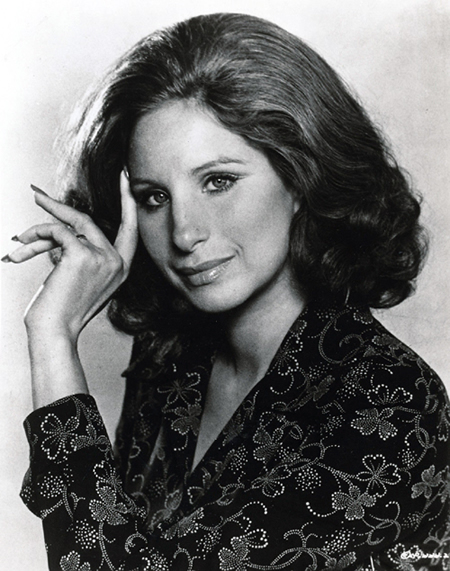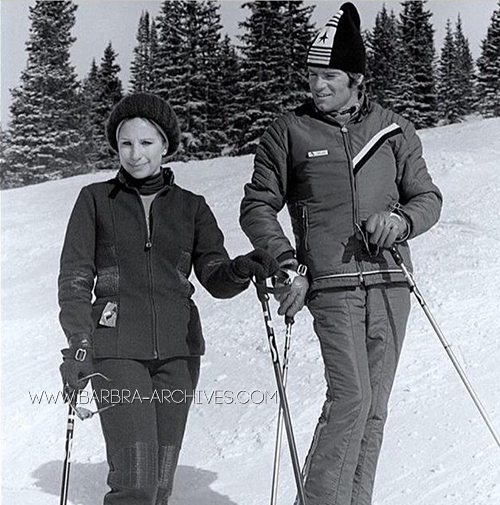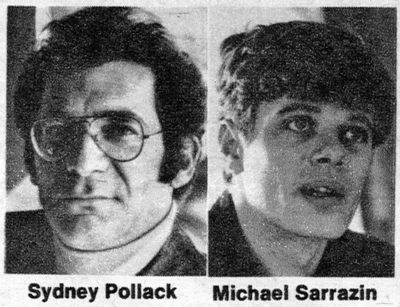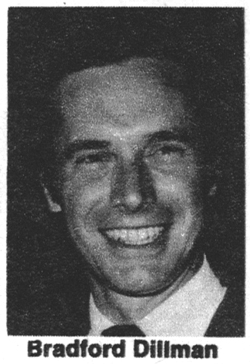Streisand, Our Poll-Winner, As Seen by Three Friends

Family Weekly—May 5, 1974
By Peer J. Oppenheimer
To draw a word picture of the many-faceted superstar, FAMILY WEEKLY talked with three men who have known Barbra both on and off the set: director Sydney Pollack, actor Michael Sarrazin and actor Bradford Dillman. Here’s how they see her.
Sydney Pollack, who directed her in her first completely dramatic role (“The Way We Were") soon found they were more like collaborators, than like star and director.
FAMILY WEEKLY: One hears stories about Barbra being temperamental. Do you think that’s true?
POLLACK: People get the wrong impression of Barbra. The point is, if a person is really talented, there is always a reason for temperament.
FW: Is she really bossy on the set?
POLLACK: Barbra is professional enough to know the areas in which she’s effective. And there is a difference between being a perfectionist — which she is—who demands that things be right—which she does—and being shrewish. Talent and concentration on doing the best you can give you the right to complain. Barbra’s a learner. She’s inquisitive, extraordinarily curious, enthusiastic and a very, very hard worker. Sometimes I’d want to say, “Will you just relax?” But she can’t. She works all day on the set and then she’ll go home and go over the script again and call everyone up with ideas on how to improve something.
FW: What sort of things annoy her?
POLLACK: Mistakes. She gets uptight when other people fail to do their jobs.
FW: Did you encounter any problem working with Barbra?
POLLACK: She has a tendency to take over a picture just by the size of her talent and larger-than-life presence. lt’s hard for a costar to stay in the same ring with her. Fortunately. Robert Redford can.
FW: Do you feel that Barbra is at the peak of her career?
POLLACK: I think she‘s in a transitional phase, a growing period, in both her professional and personal life. Professionally, I think she’s stopped being an entertainer and is becoming an actress. Remember, she’s still quite young. She’s gotten every award there is to get. She’s wealthy—you know, she's the highest paid nightclub entertainer in the world — and she's a devoted mother who works her schedule to create some sort of regularity for Jason. You can get awfully insulated in Hollywood. You get totally involved with show-business people and it’s hard to remove yourself. But she’s trying.
 FW: How is she trying?
FW: How is she trying?
POLLACK: I think Redford and I had a big influence on her. Bob and I have been friends since 1960, and three years ago I bought some land and built in Sundance, Utah, where Bob has his home. During the filming of “The Way We Were” we filled Barbra’s head with stories of Sundance, snow, mountains and skiing, until she ended up going to Utah and learning to ski! Now, you must realize what a big step this was for her. She’s a city-bred girl, and like most city people she’s not about to leap on a horse for fear she’ll break in two! This was a big thing for her to conquer. I was so thrilled when she went off to Aspen and called me, all excited, and said, “I did the big run today!”

Canadian-born Michael Sarrazin, who made a name for himself playing opposite Jane Fonda in “They Shoot Horses, Don’t They?”, is Barbra’s leading man in the upcoming comedy, “For Pete’s Sake.” Michael has a contagious, easy going attitude, and he discovered a very different Barbra.
FAMILY WEEKLY: What was your reaction when you learned you would play opposite Barbra Streisand?
SARRAZIN: Well, I’d heard she was temperamental, and everyone said she could be a monster, so I was a little scared. But we got along fine right from the beginning. I’d like to think it had something to do with me, but I don ’t know. Maybe it was because the picture was a comedy. Whatever the reason, we sure had a lot of fun. We laughed all the time. She has the
“It something isn’t right, she just won’t do it. Period. It’s as simple as that.”
— Michael Sarrazin
greatest sense of humor! Really funny! In fact, we’d get to laughing so hard we couldn’t even do a take.
FW: She has the reputation of being very tense. Did you find this true?
SARRAZIN: She didn’t seem tense to me. She seemed quite relaxed, in fact.
FW: Then you don’t think she’s temperamental?
SARRAZIN: No. What it really is, is striving for perfection. What I mean is, if something isn’t right she just won‘t do it. Period. It’s as simple as that. She’s a perfectionist. That’s where we differed, but she opened my eyes and I learned a lot from her.
FW: Like what?
SARRAZIN: Like not to “scan-think.” I want things right, too, but I never thought over every line, every word, every inflection, every gesture the way she does. Now I’ll consider these things more thoughtfully. I think in the long run, however, we traded off in learning from each other.
FW: What did she learn from you?
SARRAZIN: She was amazed I could do things so easily. I can memorize effortlessly, and I scan-read. I also have the ability to take a situation and internalize it so that the part I play becomes me. Then it’s easy. A piece of stage business comes naturally. She was used to studying everything over and over and clinically breaking it down and picking it apart.
FW: Did you see much of each other off the set?
SARRAZIN: Sure. I’d go over to her house and watch movies in her projection room. She decorated it herself, and it really is something. Took her two years. It's black and gray and red. We had a great time.

Bradford Dillman, who electrified Hollywood with his sinister performance in “Compulsion,” worked for almost four months with Barbra filming “The Way We Were.”
FAMILY WEEKLY: After spending so much time with Barbra, what was your impression of her?
DILLMAN: She’s a very shy person. And she’s very conscious of her appearance. She’s very sensitive about it. It hurts her particularly when critics remark about her looks rather than her performance. One day she was wearing a dress in which she looked especially attractive, and I happened to mention this. I thought she’d hug me, she was so pleased and touched.
FW: How did you get along together when you weren’t before the cameras?
DILLMAN: Barbra finds it very, very difficult to socialize. She’d see me come on the set and she’d turn this way and that and hem and haw and finally she’d get up the nerve to come over and say, “Uh ... how are the children?” She found it hard to share even that common bond of interest.
FW: Did you find that she has a sense of humor?
DILLMAN: You know, she worked so hard, I really wondered if she enjoyed anything. I think I saw her laugh twice during the months we were together. One time was after I went to a little Oriental restaurant where we sometimes ate. Barbra didn’t go that night, and as I checked out, the cashier said, “Next time you come, you bling Blabla, yes?” The next day I told her what happened, and she really laughed at that. From then on I kidded her by calling her “Blabla.”
FW: Would you say she’s insecure?
DILLMAN: I think all superstars are. That's one of the things that makes them stars—the yearning for acceptance, for recognition of their talent. But one thing disappointed me about her: I never heard her sing the whole time we worked together. I guess I thought anyone with a voice like hers would be singing snatches of songs or humming all the time. But she never does. It’s as if singing is all business for her. I think that’s too bad.
The side of Barbra that is never seen by the public is summed up in a story Marty Erlichman tells. Erlichman is her personal manager and mentor who has worked for and with her since he found her in Greenwich Village when she was just an unpolished kid with a voice that sent shivers down his back. Even then she displayed a streak of determination that still drives her toward her goal, which is, to quote her, “. . . to be somebody. I decided a long time ago I didn't want to be just the best of one thing. I would be the best singer, best actress, best recording star, best Broadway star and best movie star.”
Erlichman relates how Barbra took her son with her to Africa for the location of “Up the Sandbox.” Jason is a very erudite six-year-old who has been captivated by archaeology for over a year. He’d been told about the Leakeys’ discoveries in Africa, and he had his heart set on going on a dig of his own. Afraid that her son would be disappointed if he found nothing at all, Barbra packed some chicken bones and took them with her. She dropped them on the ground so Jason would be sure to find something.

End.
